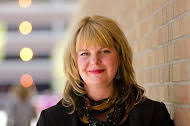Libraries everywhere have pivoted to support their community during the global pandemic. York University Libraries in Canada are leading the way by providing resources and staff expertise for research to combat the novel coronavirus, as well as enhanced access to collections and services for faculty moving to online instruction.
Dean of Libraries Joy Kirchner spearheaded a comprehensive guide on key sources to consider when conducting research on COVID-19. A team of York University librarians immediately pulled together material that could not easily be found in the published literature in the wake of this new disease.
The globally accessible COVID-19 research guide features a range of open access and other materials, such as peer-reviewed research by York faculty members on mathematical modeling, emergency planning best practices, and the social and psychological ramifications of the virus. The guide provides researchers, collaborators, and partners worldwide with a central place to freely access essential information..
“When COVID first happened as a pandemic, we knew our researchers and faculty were going to need some help. There wasn’t anything out there,” Kirchner said of the guide, which received national recognition. “We needed to put our digital and content expertise into high gear to benefit our University in sometimes unexpected ways.”
The libraries assisted with developing asynchronous learning modules, provided faculty with GIS and digital display content consultations, as well as other knowledge mobilization and digital fluency consults for faculty to create interactive, visually interesting e-learning materials. “These are things we do anyway. It just made us more visible to our community,” Kirchner said.
York librarians and archivists also got innovative with their own courses.
Just before the pandemic struck, Humanities Librarian Scott McLaren was scheduled to teach a course with Professor of Children’s Studies Cheryl Cowdy, using rare children’s books housed in the Clara Thomas Archives and Special Collections. When York University moved most of its course offerings online, it became necessary to rework McLaren and Cowdy’s course using the Libraries digitized collections.
What seemed like a disadvantage at first turned into a surprising pedagogical opportunity. “I was amazed to see the ways our students engaged with these artefacts in digital form,” said McLaren. “It made it possible for the entire class to simultaneously engage with the same rare book in breakout sessions and then return to the larger group to discuss their findings together. That simply would not have been practicable using a single physical object.”
In another instance, student instruction in Biology Professor Dawn Bazely’s summer ecology field course was disrupted when all Ontario field courses were cancelled. Realizing the importance of field-based learning and determined to provide a valuable experiential learning opportunity, Bazely drew upon her long-standing partnerships with York librarians and archivists. Together they developed a revolutionary virtual field course in which students received a “science from home” lab kit in the mail.
Teaching and Learning Librarian Ilo Maimets pivoted to Zoom to teach students about York’s available biology and ecology research guides. Also, Data Services Librarian Rosa Orlandini created interactive workshops that helped students develop map reading skills, conducted a map analysis exercise in Zoom breakout rooms, demonstrated how to use Google Earth Pro for mapping field sites, and provided geospatial data for use in the students’ research projects.
“Our expertise in open scholarship and information architecture means the Libraries were well-positioned to meet the challenges of the pandemic,” said Kirchner said, having raised the visibility of the Libraries through work on the Open Access Steering Committee and the passage of an Open Access Policy by the University’s Senate in June 2019.
In addition to producing the resource guide, the Libraries supported the work of York professor Steven Hoffman, director of the Global Strategy Lab and chair of Global Governance & Legal Epidemiology, who was appointed by the UN Deputy Secretary-General to lead the development of a United Nations Research Roadmap for the COVID-19 Recovery.
A group of librarians worked with project investigators to devise search strategies to complete scoping reviews on multiple research pillars for the project. Each pillar focused on a socioeconomic or social cohesion lens in the context of COVID-19 recovery. The scoping reviews were used by Hoffman and his team of researchers to lead the development of the recovery roadmap, which included ideas to protect health services, jobs, and community resilience with a particular focus on supporting marginalized populations, environmental sustainability and gender equality.
“It was amazing that the researchers already knew that they needed to contact our librarians,” noted Kirchner, a member of the SPARC Steering Committee. “Everybody brought something different to the table on how to approach the strategy. We were the right people to help.”
“The pandemic has underscored the need for both open scholarship and Open Educational Resources,” Kirchner added. “In the past few months, librarians have helped faculty make the shift to digital materials and connect students with sources for remote instruction. Notably, the Libraries partnered with the VP Teaching & Learning to integrate the requirement that all projects funded by the Academic Innovation Fund to make available their course materials as open educational resources.” The Libraries created a 4-module training program delivered both synchronously and asynchronously to inform and prepare recipients for OER creation and deposit into the institutional repository.
York recently reorganized its staff at the Libraries into a “flipped” model, where each person has expertise in a functional area. “This approach involved a campus-wide conversation that brought additional attention to the work of the libraries and its available resources and allowed us to better leverage our capacity in scholarly communications, scholarly publishing, digital engagement and open scholarship” said Kirchner.
The Libraries received positive feedback about how quickly staff was able to mobilize resources and respond at a time when our community was under immense pressure during the pandemic. Added Kirchner: “The hard work of our entire team of staff and librarians and archivists has made it so clear how important libraries are and demonstrated the critical role we can play supporting our entire community.”
